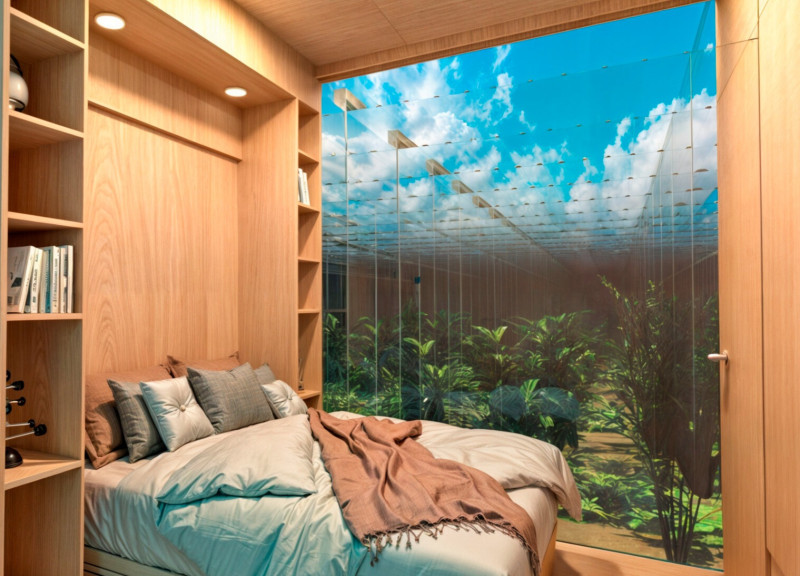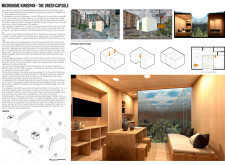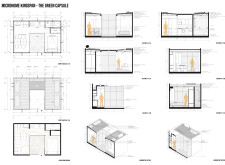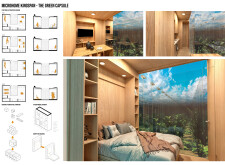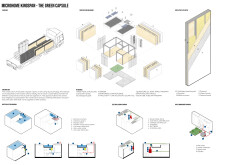5 key facts about this project
**Overview**
Located in Kyiv, Ukraine, the Microhome Kingspan - The Green Capsule addresses the pressing housing crisis intensified by recent conflicts. The design concept aims to establish a resilient and self-sufficient living environment that fosters community recovery and engagement. By integrating modern architectural principles with local context, the project aspires to enhance the quality of life for its inhabitants through adaptable living solutions.
**Spatial Strategy and User Experience**
The layout emphasizes efficient use of space through multifunctional design elements. Each area is meticulously crafted to ensure maximum versatility, catering to the dynamic needs of urban residents. Features such as a convertible Murphy bed and a compact kitchen module facilitate functionality without compromising comfort. The design fosters community interaction, particularly within shared spaces, such as the central courtyard and outdoor garden, which serve as venues for social activities and sustainable food practices.
**Material Selection and Eco-Friendly Design**
A carefully curated palette of materials underscores the project’s commitment to sustainability and structural integrity. The primary metal framework enables fast assembly, while the use of two-way glass enhances natural light and visual connectivity to the environment. Eco-efficient elements, including photovoltaic panels and a Quadcore LEC roof, contribute to energy self-sufficiency and improved insulation. Additionally, the incorporation of a vegetable patch promotes biophilic principles and local biodiversity, reinforcing the project’s dedication to creating a harmonious living space that supports both individual well-being and community interaction.


